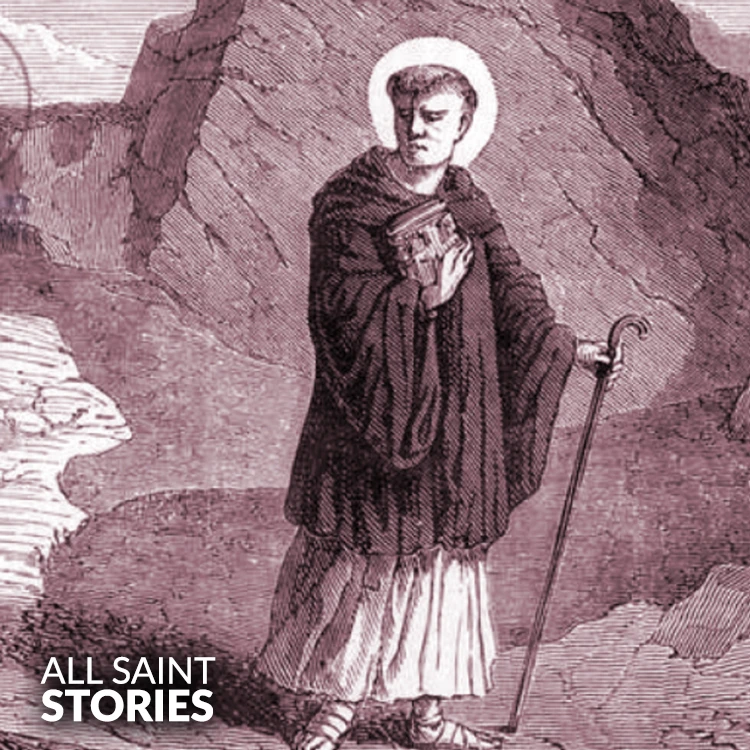"O Holy St. Maximus of Riez, steadfast servant of God, Guide us with your wisdom and deep faith. Help us to live in humility and love, As you did, serving the Church with unwavering devotion. Intercede for us, that we may grow in holiness and truth, And always remain faithful to God's will. Through Christ our Lord. Amen."
ST. MAXIMUS OF RIEZ (BISHOP, CONFESSOR)
ST. MAXIMUS OF RIEZ (BISHOP, CONFESSOR)

St. Maximus of Riez was a 5th-century bishop and theologian who is remembered for his defense of the orthodox teachings of the Church against heresies. His primary focus was on safeguarding the understanding of Christ’s dual nature, both human and divine, during theological controversies. Despite facing exile and harsh persecution, he remained a steadfast confessor of the faith. His writings had a profound impact on the development of Christian doctrine, and he is venerated as a champion of orthodoxy.
St. Maximus of Riez, born around 380 AD in southern Gaul (modern-day France), was an important figure in the early Church, particularly in the context of 5th-century theological disputes. He is often called "the Confessor" because of his courageous stance in the face of suffering and persecution for his Christian faith. St. Maximus entered the monastic life early on and eventually became the bishop of Riez, a city in Provence. He was known for his deep spiritual life and his commitment to defending the orthodox teachings of Christianity, particularly during a period marked by intense theological debates.
Maximus was a defender of the Council of Chalcedon (451 AD), which had affirmed the doctrine of Christ's two natures: both divine and human. This doctrine was a critical moment in the history of Christian theology, as it addressed the nature of Jesus Christ in opposition to heretical beliefs that either emphasized his humanity at the expense of his divinity or vice versa. One of the major heresies of the time was Monophysitism, which claimed that Christ had only one divine nature, rejecting the full humanity of Jesus. St. Maximus was a staunch opponent of this heresy and fought to preserve the orthodox belief in Christ's two natures.
As a bishop, Maximus engaged in numerous theological writings and debates, making significant contributions to the theological understanding of Christ's nature. He advocated for the unity of the two natures of Christ without confusion or separation, a teaching that became foundational for the orthodox Christian position. In addition to his work on Christology, St. Maximus also addressed other theological and doctrinal issues, including the role of the Church and the importance of the sacraments. His efforts to maintain the purity of the faith earned him the title of "Confessor" because of the suffering and persecution he endured for his beliefs.
Maximus’ theological work was crucial in shaping the direction of Christian thought during a tumultuous period. He argued that the Church’s teachings must remain faithful to the revelations of Christ and the early Church Fathers, and he opposed any movement that sought to alter or distort these teachings for political or theological reasons. Unfortunately, his commitment to the truth led to his exile and imprisonment. In the years following his exile, he was subjected to harsh treatment and even mutilation, but he remained resolute in his defense of the orthodox Christian faith.
St. Maximus died around the year 460 AD in exile, having endured great suffering for his steadfast faith. His influence, however, did not fade with his death. His writings continued to inspire generations of theologians, and his defense of Christ’s dual nature became a critical foundation for the development of Christian orthodoxy. While the exact details of his canonization are unclear, he is venerated as a saint in both the Western and Eastern Christian traditions, and his feast day is celebrated on November 27th.
Maximus' life and work are a testament to the power of faith in the face of adversity. His theological contributions remain integral to the understanding of Christian doctrine, particularly the mystery of Christ's nature. He is remembered not only as a bishop and theologian but as a true confessor of the faith, whose courage and commitment continue to inspire believers to stand firm in the truth of the Gospel, regardless of the challenges they may face.
Video Not Found
No images uploaded for this saint yet.
The information on this website is compiled from various trusted sources. While we aim for accuracy, some details may be incomplete or contain discrepancies.
If you notice any errors or have additional information about this saint, please use the form on the left to share your suggestions. Your input helps us improve and maintain reliable content for everyone.
All submissions are reviewed carefully, and your personal details will remain confidential. Thank you for contributing to the accuracy and value of this resource.
Credits & Acknowledgments
- Anudina Visudhar (Malayalam) – Life of Saints for Everyday
by Msgr. Thomas Moothedan, M.A., D.D. - Saint Companions for Each Day
by A. J. M. Mausolfe & J. K. Mausolfe - US Catholic (Faith in Real Life) – Informational articles
- Wikipedia – General reference content and images
- Anastpaul.com – Saint images and reflections
- Pravachaka Sabdam (Malayalam) – Saint-related content and insights
We sincerely thank these authors and platforms for their valuable contributions. If we have unintentionally missed any attribution, please notify us, and we will make the correction promptly.
If you have any suggestion about ST. MAXIMUS OF RIEZ (BISHOP, CONFESSOR)
Your suggestion will help improve the information about this saint. Your details will not be disclosed anywhere.
© 2026 Copyright @ www.allsaintstories.com


 English
English
 Italian
Italian
 French
French
 Spanish
Spanish
 Malayalam
Malayalam
 Russian
Russian
 Korean
Korean
 Sinhala
Sinhala
 Japanese
Japanese
 Arabic
Arabic
 Portuguese
Portuguese
 Bantu
Bantu
 Greek
Greek
 German
German
 Dutch
Dutch
 Filipino
Filipino